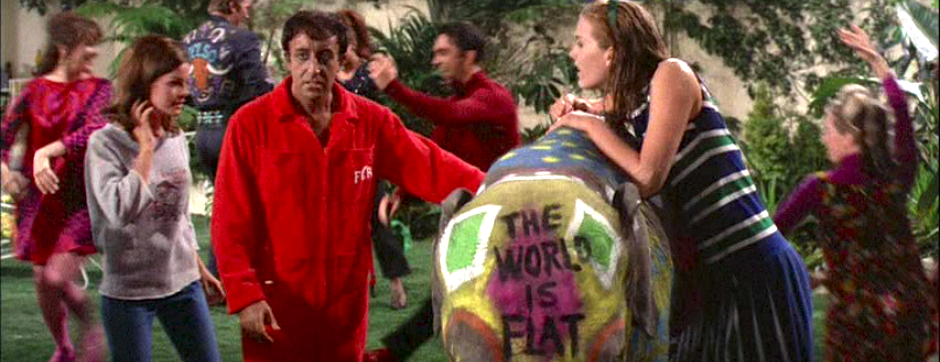(Technology, Entertainment, Design) is an annual conference that features speeches from prominent personalities in the (English-speaking) world. People who have something to say, or, as the main TED logo says, Ideas worth Spreading. People like Jeff Bezos or Al Gore have joined lots of fellow innovators to offer “Inspired talks by the world’s greatest thinkers and doersâ€.
Participation in a TED Conference is very, very difficult. First, it is close-numbered. TED 2008 is already sold out, for instance! Second, the cost is very high: $6,000. If that seems a close system, perhaps you are right. It is, after all, a North American event for the (paying) elites. Also, as said before, it appears that it is most oriented towards the English-speaking peoples of the world: at least this is what I observe from the lineup of leading speakers.
However, the interesting part is that one can (and must) watch almost all the talks and performances of those leading thinkers and artists through the Web. You can watch the videos in succession, or mix them according to a specific theme (TED proposes a few). You can upload them to your iPod or iTunes library and thus create other themes ad libidum. You can host home- or work-based discussions centered around the videos (yes, this is free, too): you and some friends may watch a video (or a related few) and then host a party! Also, you can comment and share your own ideas if you register with TED.com (that is free, too!). You can also recommend a speaker.
Here, I just would like to add some very interesting talks (from my own perspective), in more or less a random order. Please note that the talks’ summaries are quoted from TED.
Theme: What Makes Us Happy?
1. http://www.ted.com/talks/view/id/96; In this fast-paced talk (clocking in far shorter than his typical three-day seminars), iconic motivational speaker Tony Robbins explains how to unlock your true potential, and asks the audience (including former Vice President Al Gore) for a bit of high-level interaction. The spontaneous on-stage interaction between Gore and Robbins creates an unforgettable TED moment, and also demonstrates the power of Robbins’ direct — even confrontational — approach, which calls on his listeners to look within themselves, and find the inner blocks that prevent them from finding fulfillment.
2. http://www.ted.com/talks/view/id/64; Few people dare to talk about vaginas as openly as Eve Ensler, the driving force behind The Vagina Monologues, The Good Body, and V-Day, an international effort to end violence toward women. In her frank TED talk, the playwright begins with an excerpt from her now-iconic play. She shares stories from her more than 200 interviews with women about their vaginas, and talks about how sharing these stories, through the monologue and special events, helped her to reconnect with her body, her soul and the world, and find a deep happiness. “When we give in the world what we want the most,” Ensler says, “we heal the broken part inside each of us.”
3. http://www.ted.com/talks/view/id/97; Psychologist Dan Gilbert challenges the idea that we’ll be miserable if we don’t get what we want. Our “psychological immune system” lets us feel real, enduring happiness, he says, even when things don’t go as planned. He calls this kind of happiness “synthetic happiness,” and he says it’s “every bit as real and enduring as the kind of happiness you stumble upon when you get exactly what you were aiming for.”
Golan Levin: The truly soft side of software
http://www.ted.com/talks/view/id/14; After sweetly confessing that he never meant to be a performance artist, Golan Levin explains that his art is all about the quest to find a personal way to use a computer. His performance of a work called “Scribble” demonstrates what he’s talking about: His customized software allows him to manipulate, change and direct both audio and abstract animated graphics, blending the two to astonishing effect. A sneak preview of a more recent work, “Messa di Voce,” emphasizes the potential of his dazzling experimentation.
Helen Fisher: The science of love, and the future of women
http://www.ted.com/talks/view/id/16; Anthropologist Helen Fisher studies love: its evolution, its biochemical foundations and its vital importance to human society. She outlines the three stages of love (lust, infatuation and long-term attachment), shedding light on eternal questions like why we love, and why we cheat. She also discusses the natural talents of women, and their new significance in the modern world. She ends with a warning about the widespread use of antidepressants — and a truly hilarious story of romantic pursuit.
Jeff Bezos: After the gold rush, there’s innovation ahead
http://www.ted.com/talks/view/id/105; The dot-com boom-and-bust is often compared to the 1849 Gold Rush, and Amazon.com founder Jeff Bezos offers historical evidence showing how similar they were: from the riches made by pioneers to the media hype that attracted luckless speculators. But a better analogy can be found in the early days of the electric industry, he says. In the late 1800s, the U.S. was first wired to support lightbulbs; the following century saw a long procession of new appliances, life-changing advances, and of course some amusing failures. His conclusion in 2003: “I believe there’s more innovation ahead of us than behind us.”




